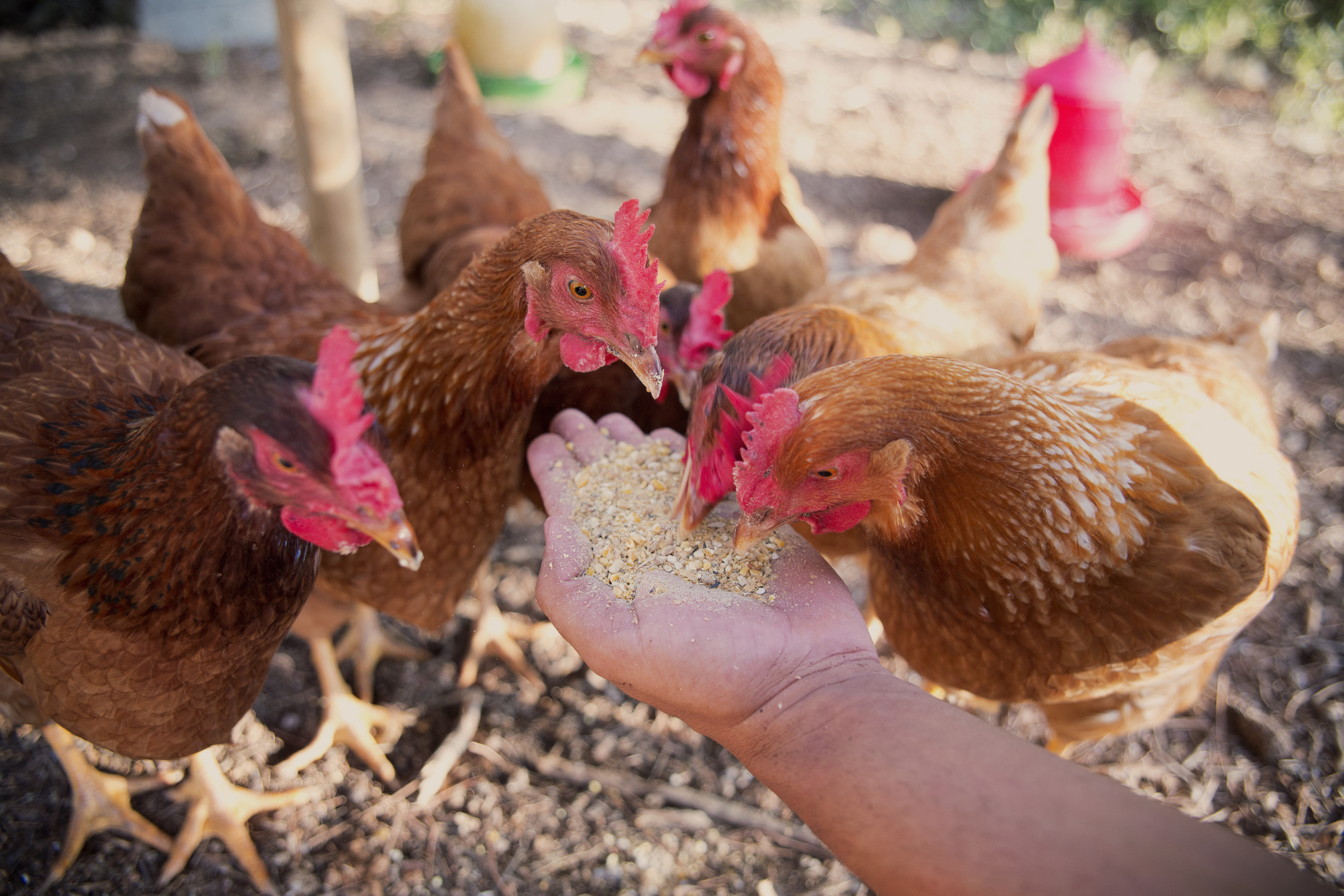Selecting the Right Chicken Feed
Learn more about feeding your chicks and chickens in Agrimaster’s guide. We cover what these animals need to stay strong and healthy.
Learn more about feeding your chicks and chickens in Agrimaster’s guide. We cover what these animals need to stay strong and healthy.

One of the most important parts of raising chickens is proper nutrition. Feeding your flock the right food can help them with egg production, growth, and more.
While nutritional needs can vary by age, activity, and breed, there are some general guidelines you can follow when choosing the right chicken feed for your flock.
Of course, always work with your veterinarian to come up with the best nutritional plan for your chickens.
Because they’re young and growing, chicks have different nutritional needs than adult birds. Baby chicks need chick starter ration feed with an 18% to 20% protein ratio.
If you’re raising broiler chicks, they’ll need a bit more protein, about 22% to 24% for the first six weeks.
If you plan on keeping chicks and laying hens in the same coop, you can use a grower feed for your entire flock. It will meet all the vitamins and minerals and other dietary needs of your chicks and pullets.
Your laying hens will also need a calcium supplement if you feed them only grower feed.
From the time they leave the brooder to when they’re 14 weeks old, baby chicks are called pullets. These older chicks need to grow slowly so they can reach a healthy body weight and have strong bones before they start egg production. They, too, will need a ration of 18% to 20% protein.
Laying hens need plenty of nutrients to produce quality eggs and to stay healthy. Hens will need 16% to 18% protein and 3.5% to 5% calcium chicken feed. If they don’t get enough calcium, their eggs will be soft-shelled, shell-less, or they’ll stop laying altogether.
Layers need a balanced layer feed, as explained above, or quality all-flock feed. In addition to the all-flock feed, they’ll need a calcium supplement, such as oyster shell. Also make sure they have easy access to plenty of fresh water.
The calcium in layer feed is essential for laying hens, but not for cockerels and non-layers. The extra calcium can actually cause health problems like gout and kidney damage in non-laying birds.
They should eat maintenance feed. Another option is to dilute layer feed with fresh fruit and vegetables or quality 20% scratch.
If you plan on raising meat birds, know that they eat more as their growth rate increases. There is chicken feed made specially for meat birds.
In the first six weeks, broilers will need between eight and nine pounds of feed per bird. In the subsequent weeks, they’ll need two pounds of feed to produce one pound of body weight.
Raising backyard chickens can be a challenge, but you can trust Blain’s Farm & Fleet to help you every step of the way. From baby chicks to egg-laying hens, you’ll find all the poultry equipment to give them the best care.
For more tips on raising and caring for your flock and other farm animals, visit our Poultry Blog!